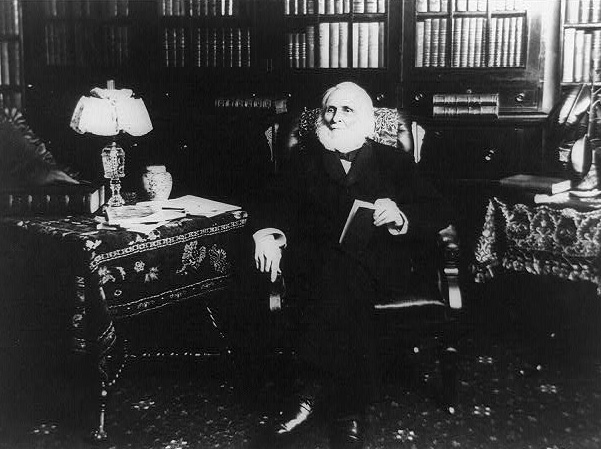April 8, 1851: Neal Dow (1804-1897) is elected mayor of Portland. He quickly uses his influence in that position to lobby successfully for passage later that year of a state law generally banning the purchase and consumption of alcoholic beverages, earning Dow the nickname “the Napoleon of Temperance.”
 The law, which becomes known nationally as “the Maine Law,” provides for the search of places where the presence of alcohol is suspected, for confiscation of alcohol, and for fines and imprisonment for those convicted of trafficking in it.
The law, which becomes known nationally as “the Maine Law,” provides for the search of places where the presence of alcohol is suspected, for confiscation of alcohol, and for fines and imprisonment for those convicted of trafficking in it.
Born in Portland as the son of Quakers, Dow organized the Maine Temperance Union in 1838. His controversial tenure as mayor lasts seven years.
In the Civil War, Dow is appointed colonel of the 13th Regiment, Maine Volunteers, and promoted to brigadier general in 1862.
In the Battle of Port Hudson, he is wounded twice and taken prisoner. He remains captive for a year before being released in a prisoner exchange, and he resigns his commission in poor health in 1864.
Dow runs unsuccessfully for president in 1880 on the Prohibition Party ticket. He receives about 0.1 percent of the vote, winding up in a distant fourth place in the election that sends James Garfield to the White House.
Joseph Owen is a retired copy desk chief of the Morning Sentinel and Kennebec Journal and board member of the Kennebec Historical Society. He can be contacted at: jowen@mainetoday.com.
Send questions/comments to the editors.


